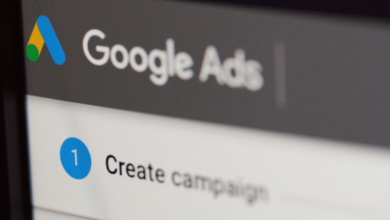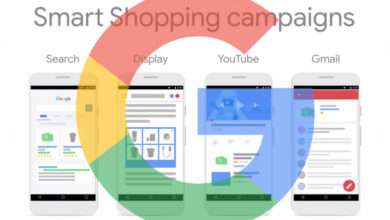The Ultimate Guide to Creating a Successful Digital Marketing Campaign

Introduction
With the rapid growth of the digital landscape, businesses are increasingly turning to digital marketing to reach their target audience and drive growth. However, creating a successful digital marketing campaign can be a daunting task, especially for those new to the field. In this guide, we will provide you with the essential steps and strategies to help you create a successful digital marketing campaign that drives results.
1. Define Your Goals
Before diving into creating a digital marketing campaign, it is essential to define your goals. Whether you want to increase brand awareness, drive website traffic, generate leads, or boost sales, having clear and measurable goals will help you create a focused and effective campaign.
Examples of goals:
- Increase website traffic by 30% in the next three months
- Generate 100 leads per month through digital marketing efforts
- Boost online sales by 20% in the next quarter
2. Know Your Audience
Understanding your target audience is crucial for the success of your digital marketing campaign. Conduct market research to identify your target demographic, their preferences, behaviors, and pain points. This information will help you tailor your campaign to resonate with your audience and drive engagement.
Ways to know your audience:
- Conduct surveys and interviews
- Analyze website and social media analytics
- Use customer personas to create targeted messaging
3. Choose the Right Channels
There are various digital marketing channels available, including social media, email marketing, search engine optimization (SEO), pay-per-click (PPC) advertising, content marketing, and more. Choose the channels that align with your goals and target audience to maximize your campaign’s effectiveness.
Popular digital marketing channels:
- Google Ads
- Email marketing platforms like Mailchimp
4. Create Compelling Content
Content is king in digital marketing. Create high-quality, engaging content that resonates with your audience and provides value. Whether it’s blog posts, social media posts, videos, or infographics, compelling content will help you attract and retain your audience’s attention.
Tips for creating compelling content:
- Use storytelling to create emotional connections
- Provide valuable and actionable information
- Utilize visuals to enhance engagement
5. Implement SEO Strategies
Search engine optimization (SEO) is essential for improving your website’s visibility in search engine results pages (SERPs). Implement on-page and off-page SEO strategies to optimize your website and content for search engines, driving organic traffic to your site.
SEO strategies to implement:
- Keyword research and optimization
- Optimizing meta tags and descriptions
- Building high-quality backlinks
6. Monitor and Analyze Results
Monitoring and analyzing the performance of your digital marketing campaign is crucial for optimizing its effectiveness. Use analytics tools to track key performance indicators (KPIs) such as website traffic, conversion rates, and engagement metrics. Adjust your campaign based on the data to improve results.
Key metrics to track:
- Conversion rate
- Click-through rate (CTR)
- Return on investment (ROI)
7. Optimize and Iterate
Continuous optimization is key to a successful digital marketing campaign. Based on the data and insights gathered from monitoring and analyzing your campaign, make adjustments to improve performance. Test different strategies, messages, and channels to identify what works best for your audience.
Ways to optimize your digital marketing campaign:
- A/B testing different ad creatives
- Optimizing landing pages for conversions
- Personalizing messaging based on audience segments
Conclusion
Creating a successful digital marketing campaign requires careful planning, execution, and optimization. By defining clear goals, understanding your audience, choosing the right channels, creating compelling content, implementing SEO strategies, and monitoring results, you can create a campaign that drives results and achieves your business objectives. Remember to continuously optimize and iterate on your campaign to maximize its effectiveness and reach your target audience.
FAQs
1. How long does it take to see results from a digital marketing campaign?
The timeline for seeing results from a digital marketing campaign can vary depending on various factors such as the campaign’s goals, channels used, target audience, and budget. In general, some results can be seen within a few weeks, while others may take several months to fully realize.
2. What is the importance of A/B testing in a digital marketing campaign?
A/B testing, also known as split testing, is essential in a digital marketing campaign as it allows you to test different variations of your ads, landing pages, and messaging to identify what resonates best with your audience. By conducting A/B tests, you can optimize your campaign for better results and improve ROI.
3. How do I measure the success of my digital marketing campaign?
Measuring the success of your digital marketing campaign involves tracking key performance indicators (KPIs) such as website traffic, conversion rates, click-through rates, and return on investment (ROI). By analyzing these metrics, you can determine the effectiveness of your campaign and make informed decisions to optimize its performance.


